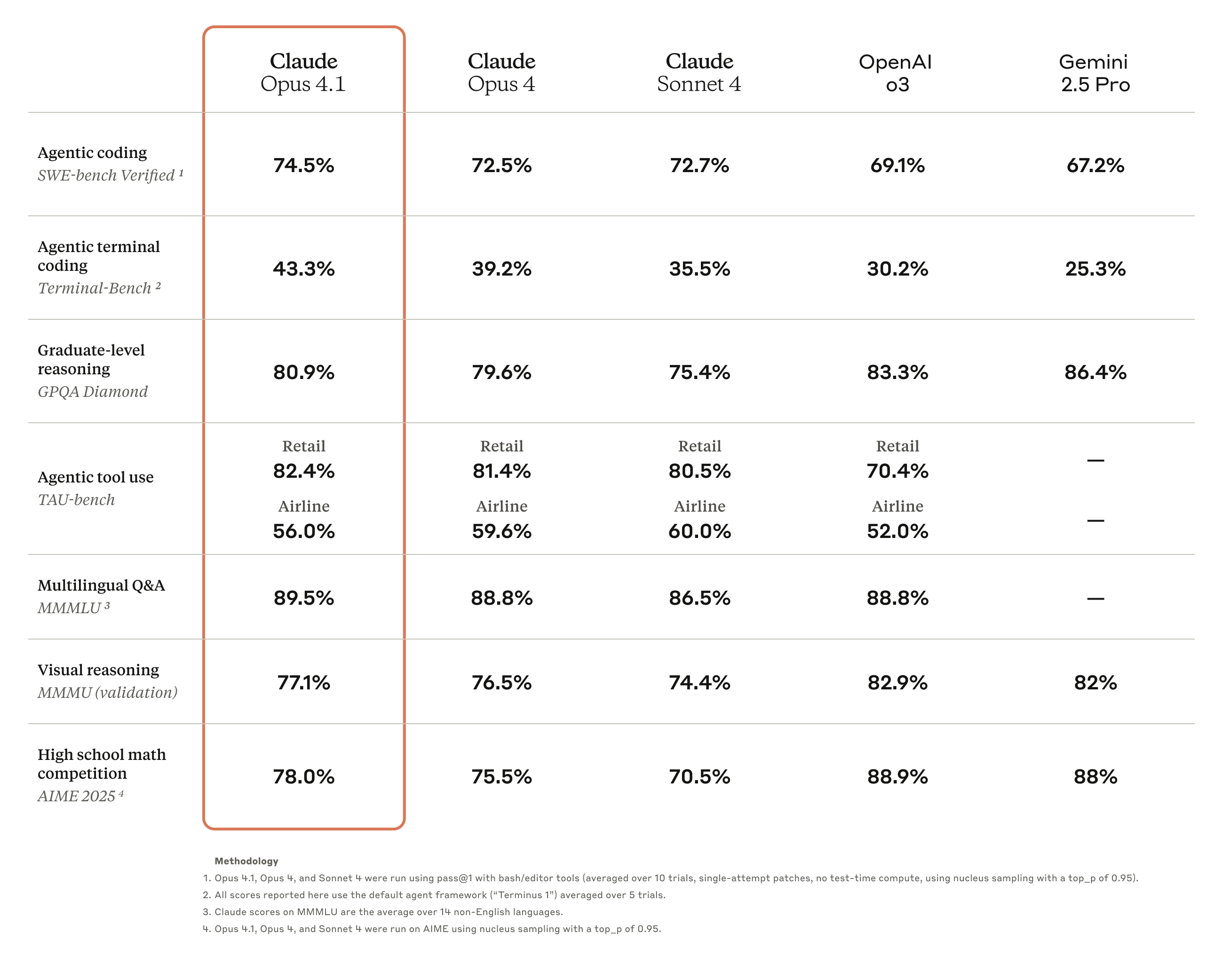Anthropic Claude Opus 4.1 Elevates AI Coding Precision and Autonomous Task Management

Anthropic Unveils Claude Opus 4.1: A Leap Forward in Coding and Autonomous Task Management
The latest update from Anthropic introduces significant enhancements to their advanced language model, delivering notable strides in software development capabilities and agent-driven task execution. This upgraded system has made its debut for subscribers, bringing with it improvements that bolster precision, efficiency, and multi-task handling in complex coding environments.
Compared to its predecessor, this iteration demonstrates a superior ability to generate and refine code. It excels in managing extensive segments of programming logic, providing smoother refactoring processes and simultaneously handling multiple files with greater ease. These strengths position the model as an effective collaborator in demanding software engineering workflows and intricate automation scenarios.
The model’s availability is presently limited to paying customers, encompassing users accessing through Anthropic’s own platform, API integrations, and through partnerships with major cloud service providers. This controlled deployment allows for close feedback loops to ensure performance metrics align with user expectations across diverse development settings.
Enhanced Software Engineering Proficiency
This release marks a measurable advancement in the domain of software engineering accuracy. Performance benchmarks indicate an elevated success rate in solving real-world coding problems, surpassing prior versions by a clear margin. The refined coding ability supports sophisticated programming tasks, including debugging, code generation, and systematic restructuring of large-scale projects.
Such improvements are partially attributed to optimized reasoning faculties embedded within the model’s architecture, enabling it to process and manipulate complex logical flows more effectively. This capability enhances its responsiveness in environments requiring autonomous decision-making and continuous adaptation to shifting coding requirements.
Enterprise users report that the model can pinpoint corrections precisely, avoiding extraneous alterations and thereby maintaining stability within larger codebases. This precision is particularly valuable in collaborative workflows where clarity and accuracy reduce integration overhead and accelerate development cycles.
Robust Agentic Performance and Multi-File Handling
One of the standout features introduced is the model’s advanced handling of agentic tasks—those involving autonomous operation over extended durations with layered reasoning steps. The system's architecture supports customizing "thinking budgets," allowing developers to fine-tune the balance between computational resource utilization and cognitive depth. This flexibility facilitates practical deployments spanning immediate outputs to thoughtfully complex problem-solving scenarios.
In the context of code management, this translates into smoother multi-file refactoring sessions and enhanced ability to orchestrate changes across interdependent components simultaneously. Such capacity is crucial when addressing monolithic or modular codebases that require cohesive updates without fragmenting project integrity.
Moreover, this level of autonomy in task handling broadens its applicability beyond coding alone, allowing it to serve in data synthesis, research assistance, and content crafting roles with improved contextual awareness and adaptability.
Strategic Deployment and Accessibility
This version has been integrated into prominent developer tools and cloud infrastructures, accessible to select subscribers via Anthropic’s own offerings as well as through API endpoints connected to Amazon Bedrock and Google Cloud’s Vertex AI. Its inclusion in widely used environments emphasizes readiness for enterprise-scale adoption and real-world application testing.
Within development ecosystems like GitHub Copilot, the model is featured prominently, enhancing coding assistant functionalities for professional and enterprise users. Such integrations underscore a commitment to streamlining developer experience and expanding the possibilities of AI-augmented programming.
As rollout progresses, the model is expected to replace its predecessor in supported platforms, consolidating Anthropic’s trajectory toward more capable and responsible AI systems designed for sophisticated coding challenges and agile task management. Continued updates and iterations are anticipated, reflecting ongoing advancements in AI-driven productivity tools.
